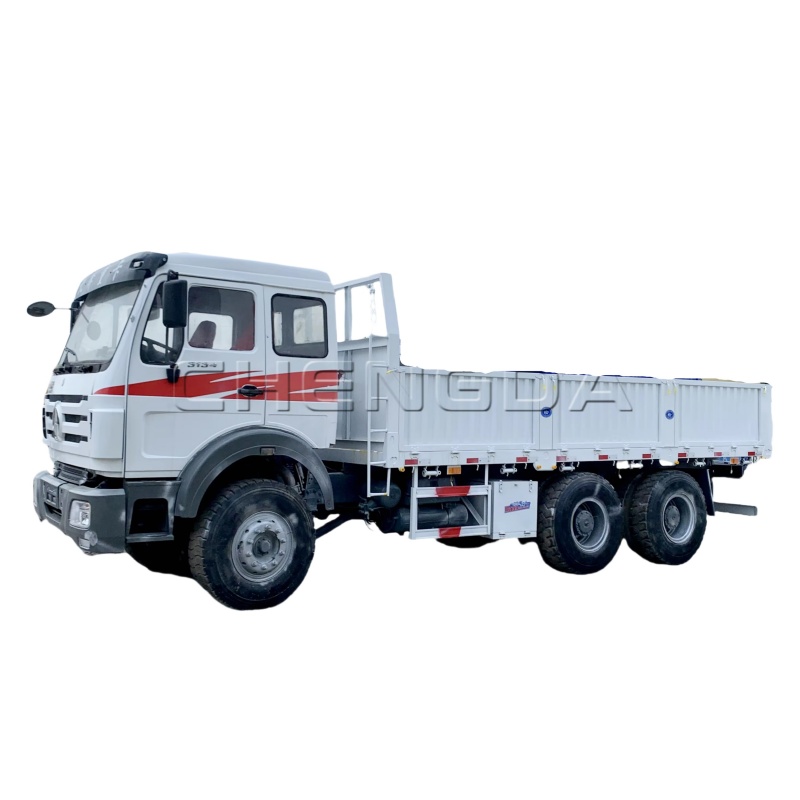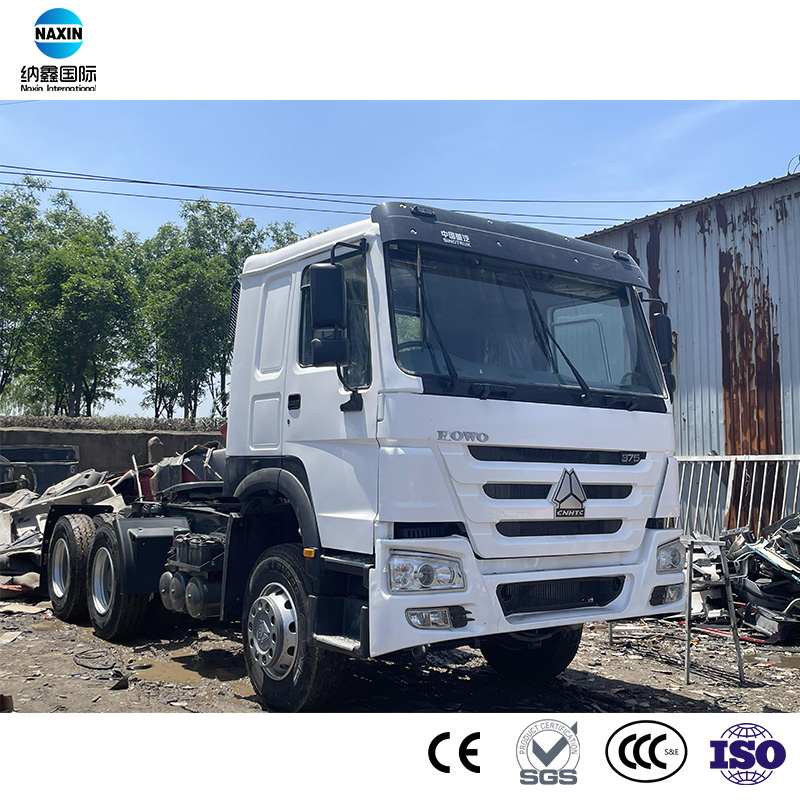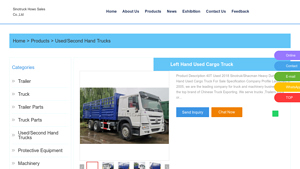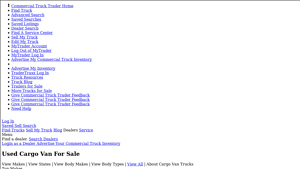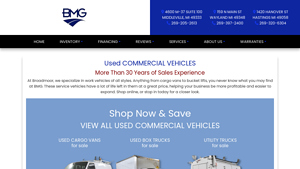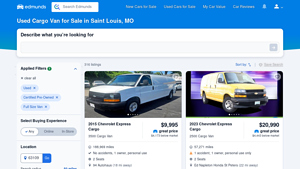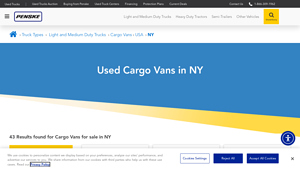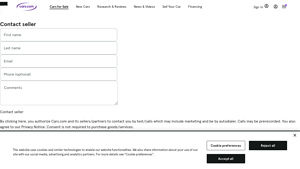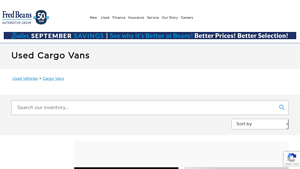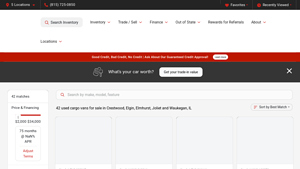Introduction: Navigating the Global Market for 40t Used Cargo Truck
In today’s competitive global market, sourcing a reliable 40t used cargo truck poses significant challenges for international B2B buyers. Whether you’re based in Nigeria, Germany, or Brazil, the complexities of navigating various suppliers, understanding pricing structures, and ensuring compliance with local regulations can be overwhelming. This guide serves as a comprehensive resource, designed to equip you with the essential knowledge to make informed purchasing decisions.
Throughout this guide, we will explore various types of 40t used cargo trucks, their applications across industries, and the intricacies of supplier vetting. You’ll gain insights into cost considerations, including unit prices, minimum order quantities, and the importance of supplier ratings. Additionally, we’ll address crucial aspects such as customization options and the benefits of GPS navigation and safety features, which are increasingly vital in today’s logistics environment.
By leveraging the information provided in this guide, you can confidently navigate the global market for 40t used cargo trucks. Empowering your procurement strategy with actionable insights will not only streamline your sourcing process but also enhance your operational efficiency and profitability. Join us as we delve into the world of heavy-duty cargo transport solutions tailored to your business needs.
Understanding 40t Used Cargo Truck Types and Variations
| Type Name | Key Distinguishing Features | Primary B2B Applications | Brief Pros & Cons for Buyers |
|---|---|---|---|
| Box Truck | Enclosed cargo area, often with hydraulic liftgates | Logistics, moving companies, food distribution | Pros: Versatile, secure cargo handling. Cons: Limited access for oversized loads. |
| Refrigerated Truck | Insulated cargo area with temperature control capabilities | Food and beverage transport, pharmaceuticals | Pros: Preserves perishable goods. Cons: Higher maintenance costs. |
| Flatbed Truck | Open cargo area with no sides or roof | Construction, heavy equipment transport | Pros: Easy loading/unloading, ideal for large items. Cons: Less protection from weather. |
| Stake Truck | Sides that can be removed or lowered for easy access | Agricultural transport, landscaping materials | Pros: Flexible loading options. Cons: Less secure than enclosed options. |
| Cargo Van | Smaller than traditional trucks, enclosed space for cargo | Urban deliveries, small business logistics | Pros: Maneuverable in tight spaces. Cons: Limited cargo capacity compared to larger trucks. |
What Are the Characteristics of Box Trucks and Their Suitability for B2B Buyers?
Box trucks are characterized by their enclosed cargo area, providing a secure environment for transporting goods. They often feature hydraulic liftgates that facilitate the loading and unloading process, making them ideal for logistics and moving companies. B2B buyers should consider the truck’s load capacity, engine specifications, and additional features like GPS navigation and rearview cameras when making a purchase decision. Their versatility and security make them a popular choice for various industries.
How Do Refrigerated Trucks Meet the Needs of Specific Industries?
Refrigerated trucks are essential for transporting perishable goods, as they maintain a controlled temperature within the cargo area. This type of truck is particularly suitable for food and beverage distribution, as well as pharmaceutical deliveries. When purchasing a refrigerated truck, B2B buyers should assess the insulation quality, refrigeration system, and overall condition of the vehicle. While they are more expensive to maintain, the ability to preserve sensitive products makes them invaluable for specific sectors.
What Advantages Do Flatbed Trucks Offer for Heavy Equipment Transport?
Flatbed trucks are distinguished by their open cargo area, making them ideal for transporting heavy equipment and construction materials. Their design allows for easy loading and unloading, which is advantageous for B2B operations that require frequent transport of large items. Buyers should evaluate the truck’s weight capacity and dimensions to ensure compatibility with their needs. However, the lack of weather protection can be a drawback, requiring additional considerations for sensitive cargo.
Why Are Stake Trucks Beneficial for Agricultural and Landscaping Applications?
Stake trucks feature removable or collapsible sides, providing flexibility in loading options. This makes them particularly suitable for agricultural transport and landscaping materials. B2B buyers should consider the truck’s payload capacity and the ease with which the sides can be adjusted. While they offer versatility, stakeholders should also be aware that stake trucks may provide less security than fully enclosed options, necessitating careful planning for cargo protection.
What Role Do Cargo Vans Play in Urban Delivery Services?
Cargo vans serve as a compact solution for urban deliveries, providing an enclosed space for transporting goods. Their smaller size allows for easy maneuverability in congested areas, making them ideal for small business logistics. When considering a cargo van, B2B buyers should look at the vehicle’s cargo capacity, fuel efficiency, and maintenance history. Although they lack the load capacity of larger trucks, their practicality for city deliveries makes them a favored choice among many businesses.
Key Industrial Applications of 40t Used Cargo Truck
| Industry/Sector | Specific Application of 40t Used Cargo Truck | Value/Benefit for the Business | Key Sourcing Considerations for this Application |
|---|---|---|---|
| Logistics & Transportation | Distribution of goods across urban and rural areas | Enhances delivery efficiency and reduces transportation costs | Ensure compatibility with local road regulations and load capacities |
| Agriculture | Transporting agricultural products like grains and livestock | Supports timely delivery and minimizes spoilage | Consider truck features like temperature control for perishables |
| Construction | Hauling construction materials and equipment | Increases project efficiency by ensuring timely material supply | Check for durability and load capacity to handle heavy materials |
| Retail | Moving large quantities of retail goods to distribution centers | Streamlines inventory management and improves supply chain efficiency | Look for customizable options to fit specific cargo needs |
| Food & Beverage | Delivering bulk food products to restaurants and stores | Ensures freshness and quality of food products | Verify hygiene standards and cooling options for perishables |
How is the 40t Used Cargo Truck Utilized in Logistics & Transportation?
In the logistics and transportation sector, the 40t used cargo truck is essential for distributing goods across both urban and rural areas. These trucks facilitate the movement of large volumes of products, enhancing delivery efficiency while significantly reducing transportation costs. For international buyers, particularly in regions like Africa and South America, sourcing trucks that comply with local road regulations and load capacities is crucial. This ensures smooth operations without legal complications, thereby maximizing the return on investment.
What Role Does the 40t Used Cargo Truck Play in Agriculture?
In agriculture, the 40t used cargo truck is primarily used for transporting various agricultural products such as grains, fruits, and livestock. This application is vital for maintaining the supply chain and ensuring that products reach markets promptly, thus minimizing spoilage. Buyers from regions with extensive agricultural activities, like Nigeria and Brazil, should consider trucks equipped with features such as temperature control to protect perishable goods during transport. This capability can significantly enhance the quality of products delivered to market.
How Does the 40t Used Cargo Truck Support the Construction Industry?
The construction industry benefits greatly from the use of 40t used cargo trucks for hauling materials and equipment to job sites. These trucks improve project efficiency by ensuring that materials are delivered on time, which is crucial for keeping projects on schedule. For buyers in Europe and the Middle East, sourcing durable trucks with high load capacities is essential to handle heavy construction materials like steel and concrete. This consideration helps avoid potential delays due to equipment failure or capacity issues.
In What Ways is the 40t Used Cargo Truck Important for Retail?
In the retail sector, the 40t used cargo truck is used to move large quantities of goods from warehouses to distribution centers or directly to stores. This application is integral to streamlining inventory management and improving overall supply chain efficiency. Retailers in South America and Africa should look for trucks that offer customizable options to fit specific cargo needs, such as shelving or refrigeration units, to enhance their operational capabilities and meet consumer demands effectively.
How Does the 40t Used Cargo Truck Enhance Food & Beverage Deliveries?
The food and beverage industry relies on the 40t used cargo truck for delivering bulk food products to restaurants, grocery stores, and catering services. Ensuring the freshness and quality of food products during transport is paramount for businesses in this sector. International buyers should verify that the trucks meet hygiene standards and are equipped with cooling options for perishables. This attention to detail can enhance customer satisfaction and ultimately drive sales in a competitive market.
3 Common User Pain Points for ’40t Used Cargo Truck’ & Their Solutions
Scenario 1: Complicated Procurement Process for Used Cargo Trucks
The Problem: International B2B buyers often face a convoluted procurement process when sourcing 40t used cargo trucks. The complexity arises from multiple factors, including varying regulations across countries, the necessity for extensive paperwork, and the challenge of ensuring that suppliers are reputable. Buyers may feel overwhelmed when they encounter language barriers, different standards for vehicle inspections, and the need for compliance with local laws, which can lead to costly delays and uncertainty.
The Solution: To navigate this procurement maze, buyers should prioritize working with verified suppliers who have a solid reputation in the market. Conduct thorough research by checking online platforms and industry-specific forums to gather reviews and testimonials about potential vendors. It’s advisable to request detailed vehicle inspection reports and maintenance histories to ensure that the trucks meet local safety and operational standards. Additionally, establishing a clear communication channel with suppliers can facilitate a smoother transaction. Engaging a local logistics expert can also help in understanding the regulatory landscape, thus ensuring that all necessary documentation is in order before finalizing the purchase.
Scenario 2: Concerns Over Vehicle Condition and Reliability
The Problem: A significant concern for B2B buyers is the condition and reliability of used 40t cargo trucks. Without the ability to physically inspect the vehicles, buyers may worry about hidden damages or mechanical issues that could lead to operational disruptions. This concern is amplified when purchasing from international suppliers, where the risk of receiving a truck that doesn’t meet expectations is higher.
The Solution: To mitigate these risks, buyers should insist on a comprehensive inspection report from an independent third-party service before committing to a purchase. This report should include details on the truck’s engine health, transmission, brakes, and overall structural integrity. Additionally, buyers can request a test drive or video walkthrough of the vehicle, if possible. Engaging with suppliers who offer a warranty or after-sales service can provide an additional layer of security, ensuring that buyers have support in case of any issues post-purchase. Utilizing platforms that specialize in used trucks can also help buyers find reliable options with verified condition reports.
Scenario 3: Uncertainty About Pricing and Total Cost of Ownership
The Problem: Many B2B buyers struggle with understanding the total cost of ownership (TCO) associated with 40t used cargo trucks. The initial purchase price often does not reflect ongoing expenses such as maintenance, fuel consumption, insurance, and potential repairs. This lack of clarity can result in budget overruns and unforeseen operational costs that can jeopardize financial planning.
The Solution: Buyers should conduct a thorough TCO analysis before making a purchase decision. This involves not only evaluating the upfront cost of the truck but also estimating the costs associated with maintenance, fuel efficiency, and insurance. Engaging with suppliers to understand their maintenance plans and warranty options can provide insight into expected upkeep costs. Additionally, utilizing online tools or calculators that estimate TCO based on specific vehicle models can help in making informed comparisons. It’s also beneficial to gather feedback from other businesses in the same industry regarding their experiences and costs related to specific models of used cargo trucks. This data can provide a clearer picture of what to expect, enabling buyers to make more informed financial decisions.
Strategic Material Selection Guide for 40t Used Cargo Truck
What Are the Key Materials Used in 40t Used Cargo Trucks?
When selecting materials for a 40t used cargo truck, several factors must be considered, including durability, cost, and specific application requirements. The following materials are commonly used in the construction of these trucks:
Steel: The Backbone of Cargo Truck Construction
Key Properties: Steel offers high tensile strength, excellent toughness, and good fatigue resistance. It can withstand extreme temperatures and pressures, making it suitable for heavy-duty applications.
Pros & Cons: Steel is durable and can handle heavy loads, which is essential for cargo trucks. However, it is susceptible to corrosion if not properly treated, and its weight can impact fuel efficiency. The manufacturing process can also be complex, requiring specialized equipment for welding and fabrication.
Impact on Application: Steel is compatible with a wide range of media, including various cargo types. However, it may require additional protective coatings to prevent rust, especially in humid or coastal environments.
Considerations for International Buyers: Buyers from regions like Africa and South America should ensure compliance with local regulations regarding steel grades. Standards such as ASTM for the U.S. and EN for Europe may apply, influencing material selection.
Aluminum: Lightweight and Corrosion-Resistant
Key Properties: Aluminum is lightweight, corrosion-resistant, and offers good thermal conductivity. It has a lower density than steel, which can enhance fuel efficiency.
Pros & Cons: The main advantage of aluminum is its weight, which can improve payload capacity and fuel economy. However, it is generally more expensive than steel and may not provide the same level of strength under heavy loads. The manufacturing process can also be more complex due to the need for specialized welding techniques.
Impact on Application: Aluminum is ideal for transporting goods that require a lighter vehicle. It is particularly beneficial in regions with high fuel costs. However, its lower strength may limit its use in extremely heavy-duty applications.
Considerations for International Buyers: Buyers should consider local recycling capabilities, as aluminum is often more recyclable than steel. Compliance with international standards like ISO may also be relevant.
Composite Materials: The Future of Truck Manufacturing?
Key Properties: Composites can offer high strength-to-weight ratios and excellent corrosion resistance. They are often engineered to meet specific performance criteria.
Pros & Cons: Composites can significantly reduce vehicle weight and improve fuel efficiency. However, they can be expensive to manufacture and may require specialized repair techniques. Their long-term durability under heavy loads is still being evaluated.
Impact on Application: Composites are suitable for specific applications, such as in areas where weight savings are critical. They may not be as widely accepted in traditional cargo transport due to perceptions of durability.
Considerations for International Buyers: Buyers should assess the availability of composite materials in their region and consider the potential need for specialized training for maintenance and repair.
Rubber: Essential for Suspension and Traction
Key Properties: Rubber provides excellent elasticity and shock absorption. It is resistant to wear and can handle a range of temperatures.
Pros & Cons: Rubber is essential for tires and suspension components, offering good traction and comfort. However, it can degrade over time due to exposure to UV light and extreme temperatures, necessitating regular maintenance and replacement.
Impact on Application: Rubber is critical for ensuring vehicle safety and performance, particularly in varying terrains common in regions like Africa and South America.
Considerations for International Buyers: Buyers should ensure that rubber components meet local safety standards and consider the availability of replacement parts in their region.
Summary Table of Material Selection for 40t Used Cargo Truck
| Material | Typical Use Case for 40t Used Cargo Truck | Key Advantage | Key Disadvantage/Limitation | Relative Cost (Low/Med/High) |
|---|---|---|---|---|
| Steel | Truck chassis and body | High strength and durability | Prone to corrosion | Medium |
| Aluminum | Cargo box and body panels | Lightweight, improves fuel efficiency | Higher cost, lower strength | High |
| Composite | Specialized components | High strength-to-weight ratio | Expensive, complex repairs | High |
| Rubber | Tires and suspension systems | Excellent shock absorption | Degrades over time | Medium |
This guide provides actionable insights for international B2B buyers, helping them make informed decisions on material selection based on performance, cost, and regional considerations.
In-depth Look: Manufacturing Processes and Quality Assurance for 40t Used Cargo Truck
What Are the Key Stages in the Manufacturing Process of a 40t Used Cargo Truck?
The manufacturing process of a 40t used cargo truck involves several critical stages that ensure the vehicle meets durability, performance, and safety standards. These stages can be broadly categorized into material preparation, forming, assembly, and finishing.
Material Preparation
The first step in manufacturing is material preparation. This includes sourcing high-quality steel and other materials that can withstand the rigors of heavy-duty usage. Suppliers often perform metallurgical tests to verify the strength and durability of the materials. For instance, steel sheets are cut and shaped into various parts of the truck, such as the chassis, body, and cargo area.
Forming Techniques
Once materials are prepared, forming techniques come into play. This may involve processes like stamping, welding, and bending. Advanced technologies, such as CNC (Computer Numerical Control) machining, are frequently employed to ensure precision in the parts being produced. For the 40t cargo truck, forming techniques must meet industry standards to ensure that each component can handle specified load capacities.
Assembly of Components
The assembly stage is where all components come together. This includes the installation of the engine, transmission, axles, and other essential systems. Assembly lines are typically organized to optimize workflow and minimize lead times. Teams of skilled technicians conduct initial assembly, followed by automated systems that ensure consistency across units. Quality control measures are integrated at this stage, where each assembled truck undergoes preliminary checks.
Finishing Processes
Finishing processes include painting, coating, and final inspections. Trucks are often sandblasted to remove imperfections before being painted with weather-resistant coatings. This not only enhances aesthetics but also extends the lifespan of the vehicle. Additionally, final quality checks are performed to ensure that all systems function correctly and that the truck meets regulatory standards.
How is Quality Assurance Implemented in the Production of 40t Used Cargo Trucks?
Quality assurance (QA) is an integral part of the manufacturing process for 40t used cargo trucks, ensuring that the final product meets both industry standards and customer expectations. QA processes are guided by international standards such as ISO 9001 and industry-specific regulations like CE marking and API certifications.
What International Quality Standards Should B2B Buyers Be Aware Of?
Internationally recognized standards, such as ISO 9001, establish a framework for quality management systems (QMS) that manufacturers must adhere to. This standard emphasizes continuous improvement and customer satisfaction. For B2B buyers, understanding these standards helps in evaluating potential suppliers. Additionally, specific certifications like CE and API are crucial for ensuring that the trucks comply with safety and environmental regulations in various markets.
What Are the Key Quality Control Checkpoints During Manufacturing?
Quality control (QC) checkpoints are essential for maintaining high standards throughout the manufacturing process. Key QC checkpoints include:
- Incoming Quality Control (IQC): This involves inspecting raw materials and components upon arrival to ensure they meet specified standards.
- In-Process Quality Control (IPQC): Conducted during the assembly process, this stage includes monitoring and evaluating the assembly techniques and the alignment of components.
- Final Quality Control (FQC): This is the last step before the truck is delivered. It involves comprehensive testing of all systems, including engine performance, braking systems, and electrical components.
What Common Testing Methods Are Used to Ensure Truck Quality?
Various testing methods are utilized to ensure that the trucks meet quality standards. These may include:
- Load Testing: Simulating operational conditions to assess how well the truck can handle its rated capacity.
- Dynamic Testing: Evaluating the vehicle’s performance under various driving conditions to ensure safety and reliability.
- Non-Destructive Testing (NDT): Techniques like ultrasonic testing and X-ray inspection are used to detect internal flaws in materials without damaging them.
How Can B2B Buyers Verify Supplier Quality Control Measures?
For international B2B buyers, verifying supplier quality control measures is crucial to ensure they are investing in reliable products. Here are some strategies:
What Steps Can Buyers Take to Audit Suppliers?
Buyers can conduct audits of potential suppliers to assess their manufacturing processes and quality assurance practices. During an audit, buyers should look for:
- Documentation: Suppliers should provide quality management documentation, including test reports and certification documents.
- Facility Tours: Visiting manufacturing facilities allows buyers to observe the production process and understand the quality measures in place.
- Supplier Ratings: Checking third-party ratings and reviews can provide insights into a supplier’s reliability and quality standards.
How Important Are Third-Party Inspections in the B2B Buying Process?
Third-party inspections play a vital role in ensuring transparency and objectivity in quality assurance. Engaging independent inspection agencies to evaluate the manufacturing process and product quality can mitigate risks associated with purchasing used cargo trucks. These agencies can perform detailed inspections and provide unbiased reports, helping buyers make informed decisions.
What Are the Unique Quality Control Nuances for International Buyers?
For buyers from regions such as Africa, South America, the Middle East, and Europe, there are specific quality control nuances to consider. Regulations and standards can vary significantly between countries, impacting the types of certifications that are recognized. For instance, European buyers may prioritize CE certification, while buyers in Africa may focus on compliance with local transportation regulations.
In conclusion, understanding the manufacturing processes and quality assurance protocols for 40t used cargo trucks is essential for B2B buyers. By focusing on established standards, implementing thorough QC checkpoints, and verifying supplier practices, buyers can make informed purchasing decisions that ensure they acquire reliable and compliant vehicles for their logistics needs.
Practical Sourcing Guide: A Step-by-Step Checklist for ’40t Used Cargo Truck’
Introduction
Navigating the procurement of a 40-ton used cargo truck requires a structured approach to ensure that your investment meets your operational needs while adhering to budget constraints. This checklist provides a step-by-step guide tailored for international B2B buyers, focusing on key considerations and actions to facilitate a successful sourcing process.
Step 1: Define Your Technical Specifications
Before initiating the search for a used cargo truck, clarify your technical requirements. Specify the truck’s size, weight capacity, engine type, and any necessary features such as GPS navigation or hydraulic liftgates. This step is essential to ensure that the trucks you evaluate align with your logistical needs and operational capabilities.
Step 2: Research Potential Suppliers
Conduct thorough research to identify reputable suppliers specializing in used cargo trucks. Look for suppliers with a solid track record, positive customer reviews, and a presence in your target markets. A well-established supplier can provide not only the vehicles you need but also ongoing support and service.
- Key Considerations:
- Check for a minimum of five years in business.
- Verify supplier ratings and customer feedback.
Step 3: Evaluate Vehicle Condition and History
Once you have shortlisted potential trucks, assess their condition and maintenance history. Request detailed documentation, including service records and any previous accidents. Understanding the vehicle’s history is crucial to avoid costly repairs down the line and to ensure reliability.
- What to Look For:
- Mileage and previous usage (e.g., city vs. long-haul).
- Inspection reports and certifications.
Step 4: Conduct a Thorough Inspection
Arrange for a comprehensive inspection of the vehicle, either in person or through a trusted third party. Inspecting the truck allows you to identify any physical damages, mechanical issues, or discrepancies from the seller’s description. This step is vital to confirm that the truck meets your operational standards before making a purchase.
Step 5: Verify Compliance with Local Regulations
Ensure that the used cargo truck complies with the transportation regulations in your region. Different countries and regions have specific requirements regarding emissions, safety features, and vehicle registration. Compliance is essential to avoid legal issues and ensure smooth operation.
Step 6: Negotiate the Terms of Sale
Once you are satisfied with the vehicle’s condition and compliance, engage in negotiations to finalize the terms of sale. Discuss pricing, payment options, warranties, and any additional services like after-sales support. Strong negotiation can lead to better pricing and terms that align with your budget and operational needs.
Step 7: Finalize Documentation and Logistics
Before concluding the purchase, ensure all documentation is in order. This includes the bill of sale, registration papers, and any warranties or service agreements. Additionally, plan for the logistics of transporting the truck to your location, factoring in customs requirements if applicable.
By following these steps, you can make an informed decision when sourcing a 40-ton used cargo truck, ensuring that your investment is both strategic and beneficial for your business operations.
Comprehensive Cost and Pricing Analysis for 40t Used Cargo Truck Sourcing
Understanding the cost structure and pricing dynamics for sourcing 40t used cargo trucks is crucial for B2B buyers looking to optimize their procurement strategies. This analysis covers the key cost components, price influencers, and offers actionable tips for buyers from regions such as Africa, South America, the Middle East, and Europe.
What Are the Key Cost Components for 40t Used Cargo Trucks?
The overall cost of sourcing a 40t used cargo truck comprises several components:
-
Materials: The base materials used in truck manufacturing, including steel and components such as engines and transmissions, significantly impact the pricing. Trucks with advanced materials or technologies may command higher prices.
-
Labor: Labor costs vary by region and the complexity of the truck’s design. High-wage countries may see increased labor costs reflected in the truck’s pricing.
-
Manufacturing Overhead: This includes costs associated with facilities, utilities, and indirect labor that contribute to the production of the truck. Manufacturers with established production lines may have lower overhead, allowing them to offer competitive pricing.
-
Tooling: Specialized tools and equipment necessary for the production and refurbishment of used trucks can add to the cost. Buyers should consider the manufacturer’s investment in tooling as an indicator of quality and reliability.
-
Quality Control (QC): Rigorous QC processes ensure the trucks meet safety and performance standards. Higher QC costs can lead to better quality assurance, justifying a higher price point.
-
Logistics: Transportation and handling costs are critical, especially for international shipping. These costs can fluctuate based on distance, shipping method, and destination regulations.
-
Margin: Supplier margins will vary based on market conditions, demand, and competition. Negotiating the margin can be a key strategy for buyers to achieve better pricing.
What Factors Influence the Pricing of 40t Used Cargo Trucks?
Several key factors influence the pricing of 40t used cargo trucks:
-
Volume/MOQ: Suppliers often provide discounts for bulk purchases. Understanding the minimum order quantity (MOQ) can lead to significant cost savings.
-
Specifications and Customization: Trucks that meet specific requirements or include custom features (like specialized cargo holds or enhanced safety features) may have higher prices. Buyers should clearly define their needs to avoid overpaying for unnecessary features.
-
Materials and Quality Certifications: Trucks made from high-quality materials or those that are certified for international standards (like ISO) may come at a premium. Buyers should assess whether these certifications are necessary for their operations.
-
Supplier Factors: The reputation, reliability, and experience of the supplier can significantly impact pricing. Established suppliers with a track record of quality and service may charge more but can also offer better support.
-
Incoterms: Understanding Incoterms is essential for managing logistics costs. Terms like FOB (Free on Board) or CIF (Cost, Insurance, and Freight) can affect the total landed cost of the truck.
How Can Buyers Negotiate Effectively for Cost-Efficiency?
-
Leverage Total Cost of Ownership (TCO): When evaluating costs, consider TCO, which includes purchase price, maintenance, fuel efficiency, and resale value. A higher initial investment in a quality truck may result in lower overall costs.
-
Negotiate Terms: Engage suppliers in discussions about payment terms, warranties, and after-sales support. Flexibility in these areas can lead to better overall value.
-
Research and Compare: Conduct thorough market research to understand the average pricing for similar trucks. Utilize online platforms to gather data on various suppliers and their offerings.
-
Build Relationships: Establishing long-term relationships with suppliers can lead to better pricing and terms. Suppliers are more likely to offer discounts to loyal customers.
Conclusion
While indicative prices for 40t used cargo trucks can range significantly—from approximately $3,000 to $38,000 depending on specifications and condition—buyers must consider the broader cost structure and negotiation strategies to optimize their sourcing. By understanding the cost components and price influencers, international B2B buyers can make informed purchasing decisions that align with their operational needs and financial constraints.
Alternatives Analysis: Comparing 40t Used Cargo Truck With Other Solutions
Understanding Alternatives to the 40t Used Cargo Truck
In the logistics and transportation sector, businesses often seek efficient solutions to meet their cargo needs. The 40t used cargo truck is a popular choice, but it’s essential to explore alternative options that may better align with specific operational requirements. This analysis compares the 40t used cargo truck against two viable alternatives: Cargo Vans and Container Trailers. Each solution presents unique advantages and challenges, making it crucial for buyers to evaluate their specific needs before making a purchase.
Comparison Table
| Comparison Aspect | 40T Used Cargo Truck | Cargo Van | Container Trailer |
|---|---|---|---|
| Performance | High load capacity (40 tons) | Moderate capacity (up to 3 tons) | High capacity (up to 30 tons) |
| Cost | $7,760 – $22,000 | $21,000 – $51,205 | $5,000 – $20,000 |
| Ease of Implementation | Requires specialized training and licensing | Easy to operate, minimal training needed | Requires compatible tractor for towing |
| Maintenance | Higher maintenance costs due to size and complexity | Lower maintenance needs, easier to service | Moderate maintenance; dependent on trailer type |
| Best Use Case | Bulk goods transport over long distances | Urban deliveries, smaller loads | Shipping containers, bulk transport |
What Are the Advantages and Disadvantages of Cargo Vans?
Cargo Vans provide a practical alternative for businesses focused on urban logistics. With a moderate load capacity of up to 3 tons, cargo vans are ideal for local deliveries and navigating tight spaces. Their lower maintenance costs and ease of operation make them attractive, especially for smaller businesses or those requiring frequent stops. However, their capacity limitations mean they may not be suitable for larger shipments, leading to potential inefficiencies in logistics planning.
How Do Container Trailers Compare?
Container Trailers are another viable alternative, especially for businesses involved in shipping or large-scale logistics operations. They can handle up to 30 tons of cargo, making them suitable for transporting bulk goods. The initial cost of container trailers is generally lower than that of a 40t used cargo truck, and they offer versatility in loading and unloading. However, they require a compatible tractor for towing, which can complicate logistics and increase overall costs. Additionally, they may not be as effective for urban deliveries due to their size and the need for specialized equipment.
Conclusion: Which Solution Should B2B Buyers Choose?
Choosing the right transportation solution requires a thorough understanding of your business needs. The 40t used cargo truck is ideal for companies needing to transport large volumes over long distances, while cargo vans excel in urban environments with smaller loads. Container trailers serve a unique niche for bulk transport, particularly in shipping industries. By assessing factors such as performance, cost, ease of implementation, and maintenance, B2B buyers can make informed decisions that align with their operational goals and budget constraints. Ultimately, the right choice will depend on the specific logistics requirements of the business and the nature of the goods being transported.
Essential Technical Properties and Trade Terminology for 40t Used Cargo Truck
Understanding the technical properties and trade terminology of a 40-ton used cargo truck is crucial for B2B buyers, particularly in international markets like Africa, South America, the Middle East, and Europe. This section provides insights into essential specifications and industry jargon that will aid in making informed purchasing decisions.
What Are the Key Technical Specifications for a 40t Used Cargo Truck?
-
Load Capacity
The load capacity of a cargo truck indicates the maximum weight it can safely carry. For a 40-ton truck, this typically includes the weight of the cargo and any additional equipment. Knowing the load capacity is essential for compliance with transportation regulations and ensuring the truck meets the operational needs of your business. -
Engine Power (HP)
Engine power, measured in horsepower (HP), determines a truck’s ability to perform under heavy loads and challenging road conditions. A 40t cargo truck usually has an engine power ranging from 250 HP to 460 HP. Higher horsepower can lead to better acceleration and improved efficiency, especially when navigating inclines or rough terrain. -
Transmission Type
The transmission system can be either manual or automatic. Automatic transmissions are often preferred in urban settings for ease of use, while manual transmissions may provide better control in off-road conditions. Understanding the transmission type will influence driver training requirements and vehicle operation efficiency. -
Braking System
The braking system is critical for safety, especially when carrying heavy loads. Features like air brakes and anti-lock braking systems (ABS) enhance stopping power and stability. Buyers should consider the braking system’s effectiveness in various driving conditions to ensure safe operations. -
Dimensions
Overall dimensions, including length, width, and height, impact maneuverability and storage capabilities. A standard 40-foot cargo truck will have specific dimensions that dictate how it can be used in different environments, such as urban areas with tight spaces or highways requiring longer stopping distances. -
Fuel Type
Most heavy-duty cargo trucks operate on diesel fuel, which offers better fuel efficiency and torque compared to gasoline. Understanding the fuel type is vital for budgeting operational costs and ensuring compatibility with local fuel availability.
What Common Trade Terms Should B2B Buyers Know When Purchasing a 40t Used Cargo Truck?
-
OEM (Original Equipment Manufacturer)
This term refers to the company that originally manufactured the vehicle or its components. B2B buyers often prefer OEM parts for repairs and replacements due to their reliability and compatibility with the truck. -
MOQ (Minimum Order Quantity)
MOQ indicates the smallest number of units a supplier is willing to sell. For international buyers, understanding MOQ is essential for planning purchases, especially when considering shipping and logistics costs. -
RFQ (Request for Quotation)
An RFQ is a formal process where buyers request pricing and terms from suppliers. This document helps buyers compare offers and negotiate better deals, ensuring they get the best value for their investment. -
Incoterms (International Commercial Terms)
Incoterms define the responsibilities of buyers and sellers in international transactions, including shipping, insurance, and tariffs. Familiarity with these terms is crucial for avoiding misunderstandings and ensuring smooth logistics across borders. -
Lead Time
Lead time refers to the time it takes from placing an order to receiving the product. Understanding lead times is vital for inventory management and planning operations, particularly in industries where timely delivery is critical. -
Certification Standards
Certification standards, such as ISO or CE marking, indicate compliance with safety and quality regulations. Buyers should prioritize trucks that meet relevant certification standards to ensure reliability and legal compliance in their operations.
In summary, grasping the key technical properties and trade terminology associated with 40-ton used cargo trucks is essential for B2B buyers. This knowledge not only aids in making informed purchasing decisions but also enhances operational efficiency and compliance in diverse international markets.
Navigating Market Dynamics and Sourcing Trends in the 40t Used Cargo Truck Sector
What Are the Key Trends Influencing the 40t Used Cargo Truck Market?
The 40t used cargo truck sector is experiencing significant growth driven by several global factors. Increased urbanization in emerging markets, particularly in Africa and South America, is leading to a higher demand for efficient transportation solutions. Additionally, the rise of e-commerce has intensified the need for robust logistics and supply chain operations, prompting businesses to invest in reliable cargo trucks.
Technological advancements are also reshaping sourcing strategies. Digital platforms are facilitating direct connections between suppliers and buyers, enhancing transparency and competitive pricing. B2B buyers can now leverage data analytics and AI tools to optimize their purchasing decisions, enabling them to assess vehicle performance, maintenance history, and overall reliability before making a purchase.
Moreover, sustainability is becoming a core consideration for buyers. The shift towards greener logistics solutions is prompting many companies to seek out trucks that not only meet operational needs but also align with their environmental goals. Buyers in Europe, for instance, are increasingly prioritizing vehicles that comply with stringent emissions regulations, while those in Africa are exploring options that balance cost-efficiency with sustainability.
How Can Sustainability and Ethical Sourcing Impact B2B Purchasing Decisions?
Sustainability and ethical sourcing are critical considerations for B2B buyers in the 40t used cargo truck market. The environmental impact of heavy-duty vehicles is substantial, with traditional diesel engines contributing to air pollution and greenhouse gas emissions. As global awareness of climate change intensifies, businesses are under pressure to adopt greener practices. This includes sourcing used trucks that meet eco-friendly standards or are retrofitted with cleaner technologies.
Additionally, ethical supply chains are becoming increasingly important. Buyers are now more conscientious about the origins of their vehicles, seeking suppliers who adhere to fair labor practices and environmentally responsible manufacturing processes. Certifications such as ISO 14001 for environmental management and other green certifications can serve as indicators of a supplier’s commitment to sustainability.
Investing in sustainable and ethically sourced trucks not only enhances a company’s brand reputation but also fulfills corporate social responsibility (CSR) objectives. This shift can lead to improved customer loyalty and potentially lower operational costs through increased fuel efficiency and reduced regulatory fines.
What Is the Historical Context of the 40t Used Cargo Truck Market?
The evolution of the 40t used cargo truck market is closely tied to advancements in logistics and transportation technology. The introduction of standardized shipping containers in the 1950s revolutionized freight transport, paving the way for larger vehicles capable of carrying heavier loads over longer distances. As global trade expanded, so did the demand for versatile cargo trucks.
In the late 20th century, manufacturers began to focus on enhancing the durability and efficiency of heavy-duty trucks. This included improvements in engine technology, fuel efficiency, and safety features. The rise of digital technologies in the 21st century further transformed the market, providing buyers with unprecedented access to information and enabling them to make more informed purchasing decisions.
Today, the 40t used cargo truck sector stands at the intersection of traditional logistics and modern technological advancements, as businesses adapt to changing market dynamics and increasingly prioritize sustainability in their operations.
Frequently Asked Questions (FAQs) for B2B Buyers of 40t Used Cargo Truck
-
1. How do I evaluate the condition of a used 40t cargo truck?
When assessing the condition of a used 40t cargo truck, request a detailed inspection report from the seller, including maintenance history, mileage, and any previous accidents. Look for signs of wear such as rust, tire condition, and engine performance. It’s advisable to conduct a physical inspection or hire a third-party service to evaluate the vehicle’s mechanical and structural integrity, ensuring it meets your operational requirements. Always ask for photographs and videos to get a comprehensive view if an in-person visit isn’t feasible. -
2. What are the essential specifications to consider when purchasing a 40t cargo truck?
Key specifications include engine power (typically around 250 HP or more), load capacity (10,000 lbs or higher), and drivetrain configuration (such as 6×4). Additionally, consider features like transmission type (automatic vs. manual), brake system (air brakes preferred for heavy loads), and additional options like GPS navigation, rearview cameras, and hydraulic liftgates. These specifications ensure that the truck meets your logistical needs and complies with local regulations. -
3. What are the common payment terms for purchasing used cargo trucks internationally?
Payment terms can vary significantly by supplier and region. Commonly, buyers may encounter options like a full upfront payment, a deposit followed by the balance upon delivery, or payment via letter of credit. It’s crucial to clarify payment methods, currency, and any associated fees upfront. Additionally, consider using escrow services to protect your funds until the truck is delivered and verified as described. -
4. How do I verify the credibility of a supplier when sourcing a used cargo truck?
To verify a supplier’s credibility, check their business registration, years in operation, and customer reviews. Request references from previous buyers and inquire about their after-sales support. Additionally, consider using platforms that feature verified suppliers or third-party rating systems. If possible, visit the supplier’s facility or request a video tour to assess their operations and inventory firsthand. -
5. What customization options are available for used 40t cargo trucks?
Many suppliers offer customization options such as branding (logo placement, paint color), interior modifications (shelving, cargo securing systems), and technology upgrades (GPS, telematics). Discuss your specific needs with the supplier to understand the available modifications and associated costs. Customization can enhance operational efficiency and ensure that the truck aligns with your business identity. -
6. What logistics considerations should I keep in mind when importing a used cargo truck?
When importing a used cargo truck, consider shipping costs, customs duties, and compliance with local regulations. Research the import process in your country, including any required documentation like Bill of Lading, customs declarations, and inspection certificates. Collaborate with a logistics partner familiar with international shipping to ensure smooth transit and timely delivery, avoiding potential delays. -
7. What is the typical lead time for delivery of a used 40t cargo truck?
Lead times can vary based on the supplier’s location, the buyer’s destination, and the truck’s availability. Generally, expect a timeframe of 4 to 12 weeks from order placement to delivery. Factors influencing this timeline include shipping method (container vs. roll-on/roll-off), customs clearance, and any required modifications. Always confirm expected delivery dates with the supplier to manage your logistics planning effectively. -
8. How can I ensure quality assurance for a used cargo truck purchase?
To ensure quality assurance, request a pre-purchase inspection from a qualified mechanic or third-party service. Ask for a warranty or guarantee on the truck, if available, to cover potential repairs shortly after purchase. Additionally, review the supplier’s quality control processes and request documentation of any inspections or certifications performed on the truck. Establishing clear terms regarding returns or exchanges in case of discrepancies is also vital.
Important Disclaimer & Terms of Use
⚠️ Important Disclaimer
The information provided in this guide, including content regarding manufacturers, technical specifications, and market analysis, is for informational and educational purposes only. It does not constitute professional procurement advice, financial advice, or legal advice.
While we have made every effort to ensure the accuracy and timeliness of the information, we are not responsible for any errors, omissions, or outdated information. Market conditions, company details, and technical standards are subject to change.
B2B buyers must conduct their own independent and thorough due diligence before making any purchasing decisions. This includes contacting suppliers directly, verifying certifications, requesting samples, and seeking professional consultation. The risk of relying on any information in this guide is borne solely by the reader.
Top 8 40T Used Cargo Truck Manufacturers & Suppliers List
1. Sinotruk – Left Hand Used Cargo Truck
Domain: cdtruck.com
Registered: 2017 (8 years)
Introduction: {“Product Name”:”Left Hand Used Cargo Truck”,”Model”:”2018 Sinotruk/Shacman Heavy Duty 6×4″,”Load Capacity”:”31 – 40T”,”Drive Type”:”LHD (Left Hand Drive)”,”Engine”:”WD615.47″,”Horse Power Options”:”336/371/420″,”Tire Size”:”1200R20″,”Cab Type”:”HW76 Cab”,”Cargo Tank Dimension”:”6.5*2.4*1.2″,”Cargo Tank Length”:”6.2-8m”,”Emission Standard”:”Euro 2″,”Market Segment”:”Agricultural and sideline produ…
2. Used Cargo Vans – Top Brands Available
Domain: commercialtrucktrader.com
Registered: 2004 (21 years)
Introduction: Used Cargo Van For Sale – Commercial Truck Trader
Top Makes:
– FORD (3,268)
– CHEVROLET (943)
– RAM (939)
– MERCEDES-BENZ (527)
– GMC (393)
– NISSAN (195)
– FREIGHTLINER (85)
– HINO (32)
– DODGE (30)
– Other Makes (BRIGHTDROP, CHRYSLER, ETI, HONDA, INTERNATIONAL, ISUZU, MITSUBISHI FUSO, PETERBILT, TOYOTA, VERSALIFT)
Available Colors:
– ADRIAN STEEL (18)
– SUPREME (9)
– MORGAN (8)
– SMYRNA (7)
– …
3. Broadmoor Motors – Used Work Vehicles
Domain: broadmoormotors.com
Registered: 2002 (23 years)
Introduction: Used Box Trucks, Used Work Trucks, Used Cargo Vans for Sale; Specializes in work vehicles including cargo vans, bucket lifts, utility trucks, people movers, and unique application vehicles; Financing options available; Locations in Middleville, Wayland, and Hastings, MI; Offers service for work vehicles; Sells to a variety of contractors and businesses; Highlights include used utility trucks with …
4. Chevrolet Express Cargo – 2015 Model Overview
Domain: edmunds.com
Registered: 1996 (29 years)
Introduction: Used Cargo Van listings in Saint Louis, MO include various models with key details such as: 1. 2015 Chevrolet Express Cargo 3500 – Price: $9,995, Mileage: 188,969 miles, No accidents, 1 owner, Features: Tire Pressure Warning, Trip Computer, Stability Control, Towing Capacity over 10,000 lbs. 2. 2023 Chevrolet Express Cargo 2500 – Price: $20,990, Mileage: 57,271 miles, 1 accident, 1 owner, Features…
5. Penske – Used Cargo Vans
Domain: penskeusedtrucks.com
Registered: 2001 (24 years)
Introduction: Used Cargo Vans for Sale in NY: 43 results found. Key makes include Ford (42), with models such as Transit 250 and Transit 350. Mileage ranges from 24,500 to 122,920 miles. Prices range from $24,500 to $50,750. Locations include Fredonia, Rochester, Liverpool, Central Islip, and Jamaica, NY. All vehicles are categorized as Cargo Vans (Panel Vans).
6. RAM ProMaster 1500 – Used Cargo Van for Sale
Domain: cars.com
Registered: 1998 (27 years)
Introduction: Used Cargo Vans for Sale Near Lakewood, CO
1. **2021 RAM ProMaster 1500 Low Roof**
– Mileage: 30,361 mi
– Price: $27,990 (Price drop: $300)
– Estimated Payment: $499/mo
– Exterior Color: Bright White Clearcoat
– Interior Color: Black
– Drivetrain: Front-wheel Drive
– Fuel Type: Gasoline
– Transmission: Automatic
– Engine: Pentastar 3.6L V-6 DOHC
-…
7. Used Cargo Vans – Various Brands Available
Domain: fredbeans.com
Registered: 1996 (29 years)
Introduction: Used cargo vans available at Fred Beans Automotive Group include various brands and models such as Chevrolet (Explorer Conversion Van, Express Cargo Van), Ford (Transit Van, Transit-250), GMC (Savanna), Mercedes-Benz (Sprinter-Class), and Nissan (NV Cargo, NV 200). The inventory is designed to meet diverse business and personal driving needs, with options varying in trim levels, powertrains, and l…
8. Your Choice Autos – Used Cargo Vans for Sale
Domain: yourchoiceautos.com
Registered: 2011 (14 years)
Introduction: 42 used cargo vans for sale in Crestwood, Elgin, Elmhurst, Joliet, and Waukegan, IL. Price range: $2,000 to $34,000. Financing options available. Notable models include: 2015 GMC Savana Cargo Van 2500, 2016 Chevrolet Express Cargo Van 2500, 2018 Chevrolet Express Cargo Van 2500, 2016 Ford Transit Cargo Van 250, 2015 Ford Transit Cargo Van 350, 2017 Ram ProMaster City Cargo Van, and 2019 Nissan NV2…
Strategic Sourcing Conclusion and Outlook for 40t Used Cargo Truck
In the evolving landscape of cargo transport, strategic sourcing of 40t used cargo trucks presents significant opportunities for international B2B buyers. Understanding the diverse offerings—from heavy-duty specifications to customizable features—empowers companies to make informed purchasing decisions that align with their operational needs. Key considerations include evaluating suppliers based on their track record, product quality, and pricing structures, ensuring that buyers secure optimal value.
Moreover, the global market offers a wealth of options, particularly from reputable manufacturers in regions like China. Engaging with verified suppliers can mitigate risks associated with purchasing used trucks, ensuring reliability and performance in various terrains and climates, especially in markets across Africa, South America, and Europe.
As we look ahead, the demand for efficient cargo transport solutions will only grow. Now is the time for international buyers to leverage strategic sourcing to enhance their logistics capabilities. By focusing on building strong supplier relationships and investing in quality used trucks, companies can position themselves for success in an increasingly competitive market. Take action today to explore your options and elevate your logistics operations.

